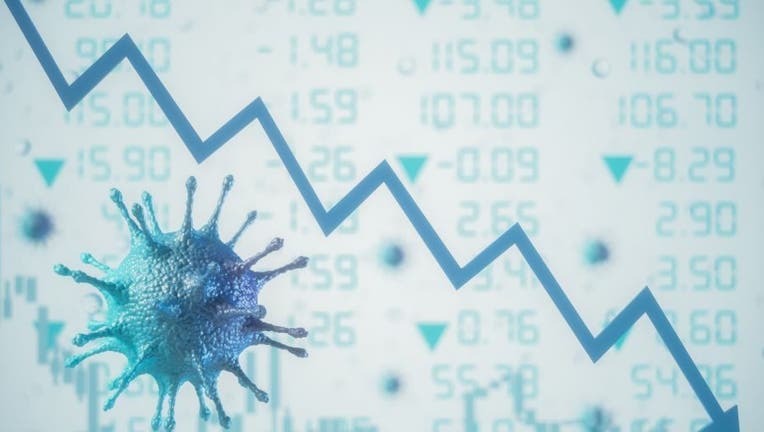How the coronavirus pandemic can impact your personal finances, according to experts

Refinancing your debt into lower interest rates could save you thousands of dollars. (iStock)
The coronavirus pandemic has impacted the way consumers spend, save, and invest their money, especially with record job losses amid a recession. The Federal Pandemic Unemployment Compensation program gave all unemployed workers an additional $600 a week through the end of July, helping them pay their mortgages, car payments, and credit card bills.
As millions of Americans are now working at home, many have opted to buy homes in areas that are affordable, moving out of major cities such as New York and San Francisco and to more suburban areas that offer more square footage. With record-low mortgage interest rates, many consumers seized the opportunity to purchase their first home.
Consumers who are tired of renting and want to own a house and build equity can explore their mortgage options by visiting Credible to compare rates and lenders.
Other consumers have opted to refinance their mortgages into lower interest rates. Refinancing makes sense if you do not have plans to move during the next few years, said Leslie Tayne, a Melville, N.Y. attorney specializing in debt relief. Shop around for the best interest rates, but also consider your current mortgage lender since the company might offer lower fees which keep the costs down.
Refinancing can save homeowners thousands of dollars each year and help them pay off a mortgage sooner. Explore your mortgage refinance options by visiting Credible to compare rates and lenders.
EVERYTHING YOU NEED TO KNOW ABOUT GETTING A PERSONAL LOAN
Paying down existing debt
Consumers who have extra cash should pay more than the monthly minimum payment each month to save money on interest and fees for credit cards and personal loans, said Bruce McClary, spokesperson for the National Foundation for Credit Counseling, a Washington, D.C.-based non-profit organization.
“Making minimum payments means interest will continue to accrue over a longer period of time, ultimately costing you more money,” he said.
People who have good credit should consider applying for a credit card or personal loan with an introductory offer with a lower interest rate to reduce monthly payment amounts.
“You can get even more traction if you move balances to lower interest rate loans or lines of credit or negotiate lower interest on the accounts you have,” McClary said.
To see what balance transfer cards have to offer, check out Credible's online marketplace.
Pay the minimum amount on the loans with the lowest interest rates and make the maximum possible payments on the accounts with the highest balances.
“This will prove the shortest route to paying down your debt,” said Paul Tyler, chief marketing officer at Nassau Financial Group, based in Hartford, Conn.
Consumers who like to see steady progress can adopt the strategy of paying off the smallest balances first. While this will take longer to eliminate debt, it could be one way to keep you psychologically motivated to stick to your plan, he said.
Refinance student loans
Consumers who are saddled with student loan debt should consider refinancing them into loans with lower interest rates which in turn decreases the monthly payments to a more affordable level. The Federal Reserve has chosen to keep interest rates at record lows, helping Americans pay down their debt.
People whose credit scores have risen recently should take advantage of refinancing since lenders examine a consumer’s credit history when considering what interest rate to offer.
To see current student loan refinancing interest rates, check out Credible.
5 SECRETS TO REFINANCING STUDENT LOANS THAT COULD SAVE YOU THOUSANDS
Building up savings
The coronavirus pandemic has been a stark reminder of why it is important to have emergency savings in addition to long-term investments for retirement, McClary said. One step to easily saving money each month is to use automatic payroll deductions that can be transferred into a savings account.
“Making the most of your emergency savings also means looking for higher-yielding accounts, like certificates of deposit,” he said.
HOW TO PAY OFF DEBT DURING CORONAVIRUS
Consumers should save at least six months of expenses, but consider increasing that amount to nine months to one year since obtaining employment could take longer during a recession, said Daren Blonski, managing principal of Sonoma Wealth Advisors in California.
People should aim to save 15 percent of their income if they want to retire.
“If you pay your savings like your bills, you will save more money,” he said. “You have to play a trick on your mind. The more money you can put into a Roth IRA will benefit you in the long run because it will compound and distributions will come out tax-free.”

